National
From LGBTQ book bans to internet bans: A bipartisan attack on knowledge
Online safe spaces for queer youth increasingly at risk
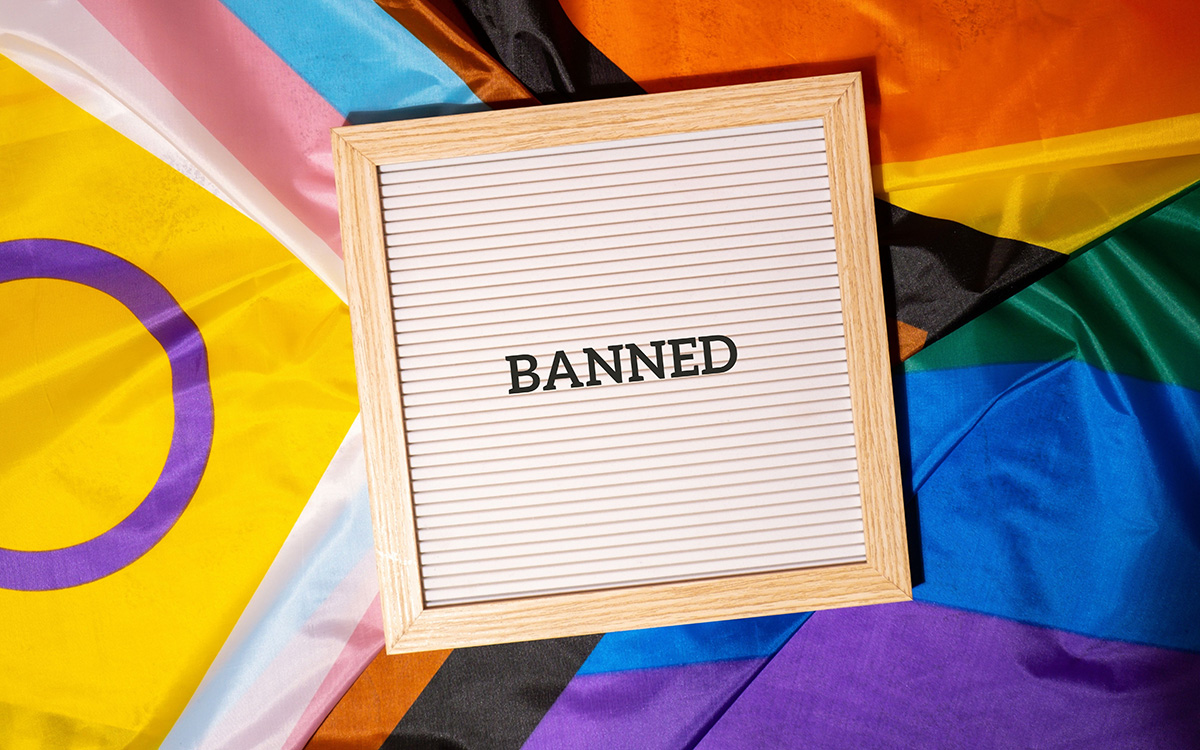
“They had LGBTQ-inclusive books in every single classroom and school library,” Maxx Fenning says of his high school experience. “They were even working on LGBTQ-specific course codes to get approved by the state,” he said, describing courses on queer studies and LGBTQ Black history.
No, Fenning didn’t grow up in Portland or a Boston suburb. Fenning graduated from a South Florida high school in 2020. Florida’s transformation from mostly affirming to “Don’t Say Gay” has been swift, he says. “It feels like a parallel universe.”
Fenning, who just graduated from the University of Florida, follows the developments closely as the executive director of PRISM FL Inc., a youth-led LGBTQ nonprofit he founded at 17. “I’ve watched so many of the things that I kind of took advantage of be stripped away from all of the students that came after me,” Fenning says. “It’s one thing to be in an environment that’s not supportive of you. It’s another thing to be in an environment that’s supportive of you and then watch it fall apart.”
“It’s just gut-wrenching,” Fenning explained, describing how Florida’s increasingly hostile legislation has transformed the state he has lived in most of his life.
Most recently, Florida passed HB3, “Online Protections for Minors,” which bans youth under 14 from having social media accounts. Youths aged 14 and 15 need parental consent before getting accounts and any minor must be protected from “harmful content” online.
Unlike the previous legislation, which came predominately from the right and directly targeted issues like gender-affirming healthcare or DEI, HB3 is part of a bipartisan push across the country to regulate social media, specifically for youth. HB3 was co-sponsored by Michele K. Rayner, the openly queer Black member of the Florida Legislature, alongside many of her colleagues across the aisle. Similar national legislation, like Kids Online Safety Act, includes 68 Democratic and Republican sponsors.
Shae Gardner, policy director at LGBT Tech, explains that this legislation disproportionately harms LGBTQ youth, regardless of intentions or sponsors.
Gardner says that while all these bills claim they are for the safety of kids, for LGBTQ youth, “you are putting them at risk if you keep them offline.” She explains that “a majority of LGBTQ youth do not have access to affirming spaces in their homes and their communities. They go online to look like that. A majority say online spaces are affirming.”
Research by the Trevor Project, which reports that more than 80% of LGBTQ youth “feel safe and understood in specific online spaces” backs this up. Specific online spaces that are under target from legislation, like TikTok, are disproportionately spaces where LGBTQ youth of color feel safest.
“For LGBTQ people, social media has provided spaces, which are, at once both public and private, that encourage, and enhance … a great deal of self-expression that is so important for these communities,” confirms Dr. Paromita Pain, professor, Global Media Studies & Cybersecurity at University of Nevada, Reno. She is the editor of the books “Global LGBTQ Activism” and “LGBTQ digital cultures.”
Fenning emphasizes that with bills like “Don’t Say Gay,” in Florida — and other states including North Carolina, Arkansas, Iowa, and Indiana — LGBTQ youth have less access to vital information about their health and history. “Social media [are] where young people increasingly turn to get information about their community, their history, their bodies and themselves.”
At PRISM, Fenning works to get accurate, fact-backed information to Florida youth through these pathways, ranging from information on health and wellbeing to LGBTQ history to current events. The feedback has been overwhelmingly positive. Often youth tell him “I wish I learned this in school,” which is a bittersweet feeling for Fenning since it represents how much young LGBTQ youth are missing out on in their education.
Morgan Mayfaire, executive director of TransSOCIAL, a Florida advocacy group, said that these internet bans are an extension of book bans, because when he was a teen, books were his pathway into the LGBTQ community. “For me it was the library and the bookstores that we knew were LGBTQ friendly.” Now 65, Mayfaire understands that “kids today have grown up with the internet. That’s where they get all their information. You start closing this off, and you’re basically boxing them in and closing every single avenue that they have. What do you think is going to happen? Of course, it’s going to have an impact emotionally and mentally.”
Fenning says that social media and the internet were powerful to him as a teen. “I was able to really come into my own and learn about myself also through social media. It was really powerful for me, building a sense of self.” Gardner agrees, sharing that legislation like this, which would have limited “15-year-old me, searching ‘if it was OK to be gay’ online, would have stagnated my journey into finding out who I was.”
Gardner also explains that many of the bills, like HB3, limit content that is “harmful” or “obscene” but do not specifically define what that content is. Those definitions can be used to limit LGBTQ content.
“Existing content moderation tools already over-censor LGBTQ+ content and users,” says Gardner, “they have a hard time distinguishing between sexual content and LGBTQ+ content.” Pain emphasizes that this is no accident, “there are algorithms that have been created to specifically keep these communities out.”
With the threat of fines and litigation from HB3, says Gardner, “moderation tools and the platforms that use them is only going to worsen,” especially since the same legislators may use the same terms to define other queer content like family-friendly drag performances.
In addition to being biased, it has devastating effects on LGBTQ youth understanding of their sense of identity, Fenning explains. “That perception of queer people as being overly sexual or their relationships and love being inherently sexual in a way that other relationships aren’t does harm to our community.”
Gardner acknowledges that online safety has a long way to go — pointing to online harassment, cybercrime, and data privacy—but that these bills are not the correct pathways. She emphasizes “everybody’s data could be better protected, and that should be happening on a federal level. First and foremost, that should be the floor of protection.”
She also emphasizes that content moderation has a long way to go from targeting the LGBTQ community to protecting it. “Trans users are the most harassed of any demographic across the board. That is the conversation I wish we were having, instead of just banning kids from being online in the first place.”
Being queer on the ground in Florida is scary. “The community is very fearful. This [legislation] has a big impact on us,” explains Mayfaire.
“I mean, it sucks. Right?” Fenning chuckles unhappily, “to be a queer person in Florida. In a state that feels like it is just continuously doing everything it can to destroy your life and all facets and then all realms.”
Despite the legislative steamrolling, several court wins and coordinated action by LGBTQ activists help residents see a brighter future. “There’s a weird tinge of hope that that has really been carrying so many queer people and I know myself especially this year as we’re seeing the rescinding of so many of these harmful policies and laws.”
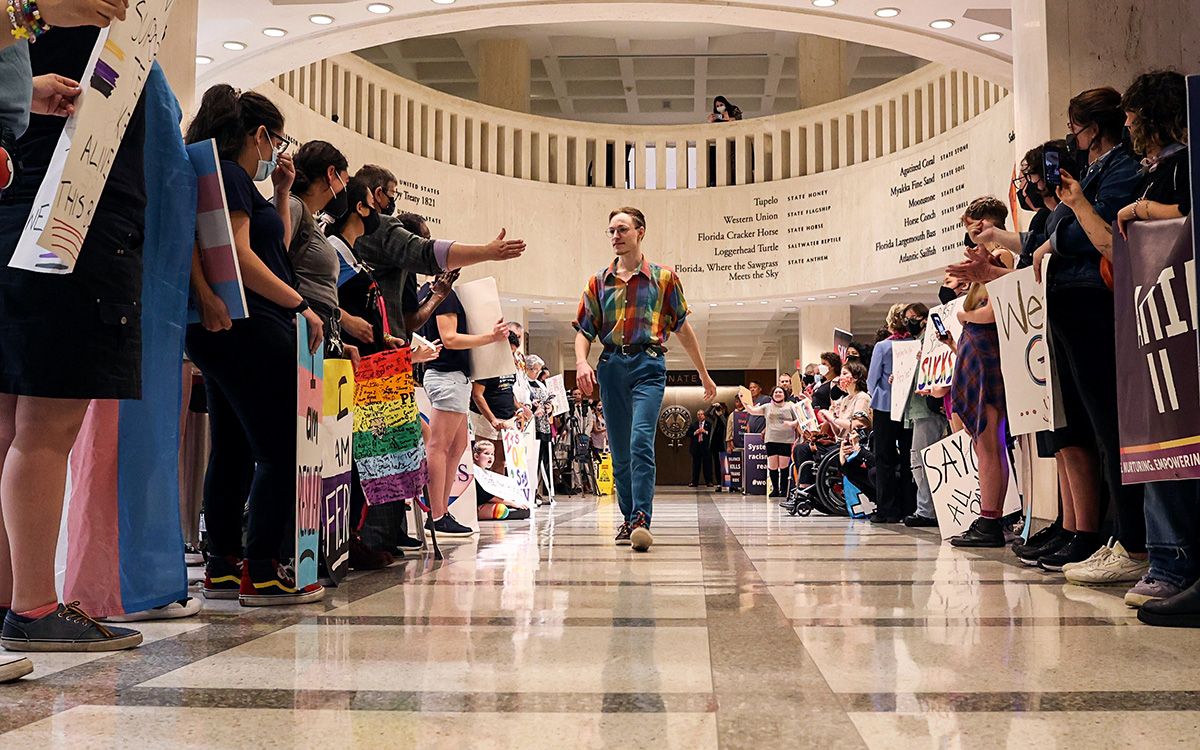
For example, this March, Florida settled a challenge to its “Don’t Say Gay” legislation that significantly lessens its impact. Already, experts warn that HB3 will face legal challenges.
Pain emphasizes that social media is central to LGBTQ activism, especially in Florida. “There have been examples of various movements, where social media has been used extremely effectively, to put across voices to highlight issues that they would not have otherwise had a chance to talk about,” she says, specifically citing counteraction to “Don’t Say Gay.” That is another reason why legislation like this disproportionately harms LGBTQ people and other minority groups, it limits their ability to organize.
Fenning emphasizes that HB3 directly attacks spaces like PRISM, which do not just share information for the LGBTQ community, but provide spaces for them. “Foundationally it provides an opportunity for the community,” he says, but more than anything, it provides a space, where “you can you can learn from your queer ancestors, so to speak, and take charge.” And that is invaluable.
(This story is part of the Digital Equity Local Voices Fellowship lab through News is Out. The lab initiative is made possible with support from Comcast NBCUniversal.)
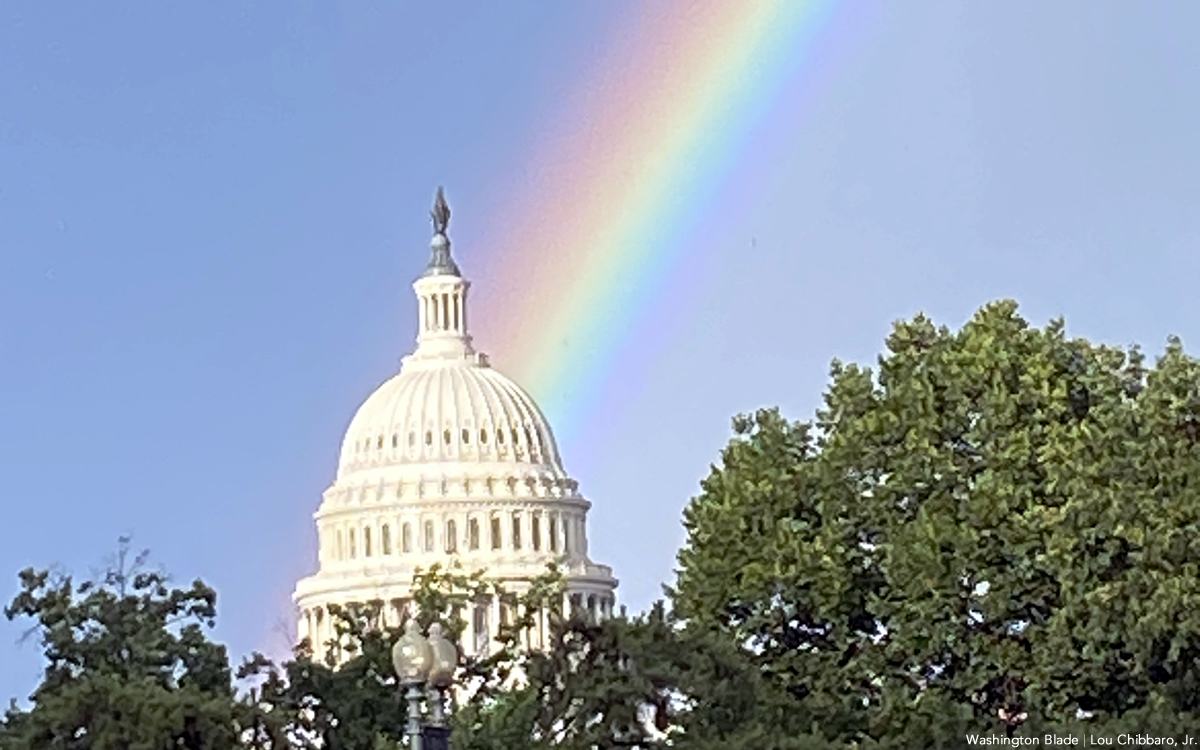
Representatives Suzanne Bonamici (D-Ore.), Mark Pocan (D-Wis.), and Sharice Davids (D-Kan.) reintroduced legislation to increase access to needed services and resources for LGBTQ seniors who live in rural areas this week.
The Elder Pride Act would bolster the capacity and ability of Area Agencies on Aging located in rural communities to better serve and support LGBTQ seniors who often require affirming care, services, and supports that are often underfunded and scarce in many parts of the country.
Recent surveys show that between 2.9 million and 3.8 million LGBTQ people live in rural American communities.
“LGBTQ+ elders and older people living with HIV live in every part of this nation, including rural areas. We all deserve to be able to age in our communities with the services and supports we need to remain independent,” SAGE CEO Michael Adams said in the press release announcing the reintroduction of the legislation. “We commend Representatives Suzanne Bonamici (D-OR), Mark Pocan (D-WI), and Sharice Davids (D-KS) on reintroducing the Elder Pride Act. And we honor the contributions of our many LGBTQ+ trailblazers whose tireless advocacy allowed us to reintroduce this critical bill. We look forward to working alongside Reps. Bonamici, Pocan, and Davids, and our LGBTQ+ pioneers nationwide to pass this legislation.”
“LGBTQI+ seniors should be able to access services and care that meets their unique needs, regardless of where they live,” said Bonamici, chair of the Equality Caucus’s LGBTQ+ Aging Issues Task Force.”Those who live in rural areas frequently face increased barriers, which Congress can break down. The Elder Pride Act will increase resources for programs and services that will improve the lives of LGBTQI+ elders.”
“The Elder Pride Act will improve the overall health and social and economic well-being of LGBTQI+ older adults and seniors living with HIV in rural areas by better equipping senior service providers with resources to address the unique needs of these communities. I’m pleased to introduce this important legislation with my colleagues and co-leaders on the Equality Caucus, Reps. Pocan and Davids,” Bonamici added.
“Rural LGBTQI+ seniors have been lacking access to necessary services and care for too long,” said Pocan, co-chair of the Congressional LGBTQ+ Equality Caucus. “The Elder Pride Act creates opportunities for LGBTQ+ seniors in rural communities, benefiting everyone in the region. I look forward to advancing this important legislation.”
“Many of our LGBTQ+ elders fought tirelessly for equality in a world that refused to accept their identity,” said Davids. “While they overcame tremendous odds to give future generations the rights they deserve, our elders, particularly those in rural communities, continue to face discrimination when accessing long-term care and healthcare. I am proud to support the Elder Pride Act because who you are and who you love should never increase your risk for isolation, poverty, and poor health outcomes as you age.”
The Elder Pride Act complements the Older American Act, which was updated under Bonamici’s leadership, by establishing a rural grant program designed to fund care and services for LGBTQ seniors. The grant would also support programs that:
• Provide services such as cultural competency training for service providers;
• Develop modes of connection between LGBTQI+ older adults and local service providers and community organizations;
• Expand the use of nondiscrimination policies and community spaces for older adults who are members of the LGBTQI+ community or another protected class; and,
• Disseminate resources on sexual health and aging for senior service providers.
A fact sheet on the legislation can be found here, and the full text can be found here.
State Department
State Department travel advisory warns of potential anti-LGBTQ violence
FBI issued similar warning this week

The State Department on Friday issued a worldwide travel advisory that warns of potential violence against LGBTQ people and LGBTQ-specific events.
“Due to the potential for terrorist attacks, demonstrations, or violent actions against U.S. citizens and interests, the Department of State advises U.S. citizens overseas to exercise increased caution,” reads the advisory. “The Department of State is aware of the increased potential for foreign terrorist organization-inspired violence against LGBTQI+ persons and events and advises U.S. citizens overseas to exercise increased caution.”
The advisory further urges U.S. citizens to:
- Stay alert in locations frequented by tourists, including Pride celebrations and venues frequented by LGBTQI+ persons.
- Enroll in the Smart Traveler Enrollment Program (STEP) to receive information and alerts and make it easier to locate you in an emergency overseas.
- Follow the Department of State on Facebook and Twitter.
The Federal Bureau of Investigation and the Homeland Security Investigations earlier this week issued a similar advisory.
The advisory notes June 12 will mark eight years since the massacre at the Pulse nightclub in Orlando, Fla.
The White House
White House acknowledges IDAHOBiT, reiterates support for global LGBTQ rights
WHO on May 17, 1990, declassified homosexuality as a mental illness
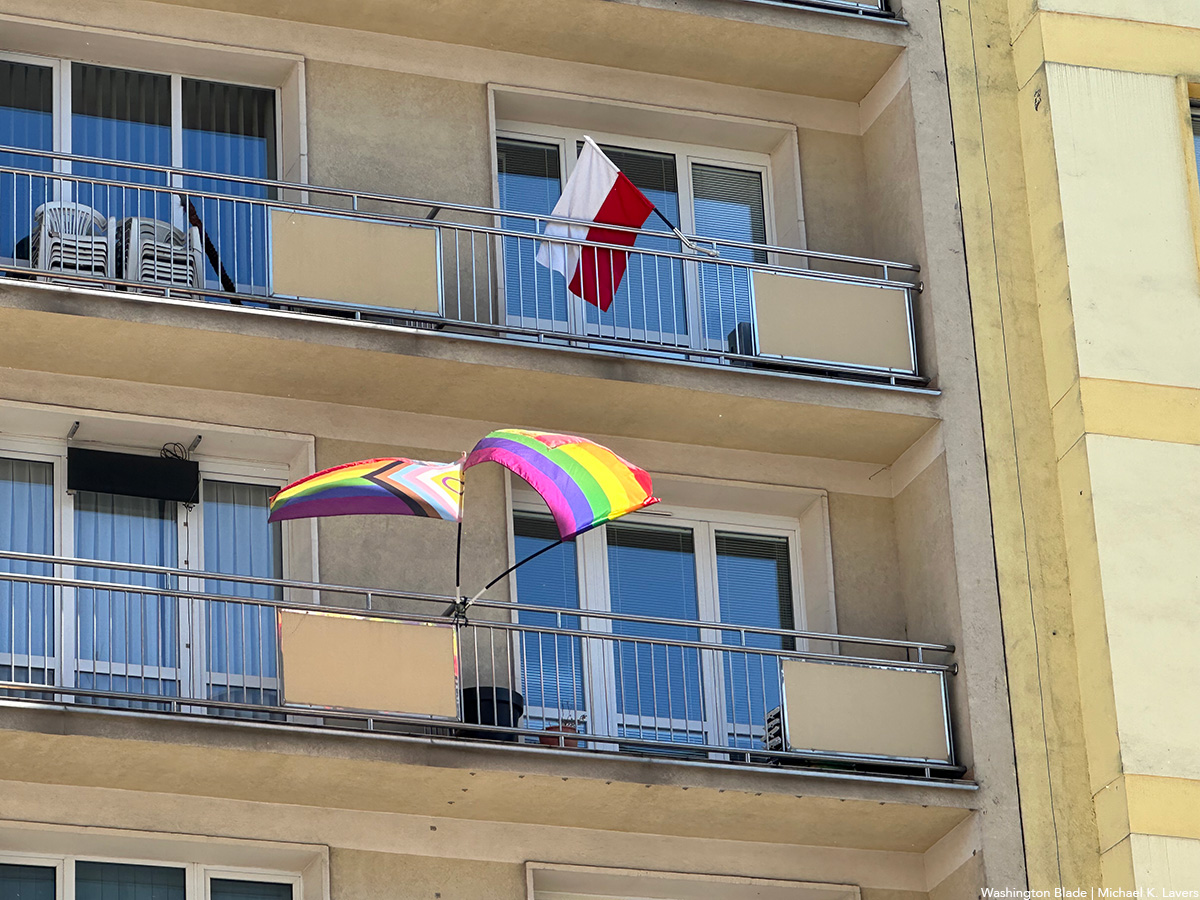
The Biden-Harris administration on Friday used the annual International Day Against Homophobia, Biphobia and Transphobia to reiterate its support of LGBTQ and intersex rights around the world.
“On the International Day Against Homophobia, Transphobia and Biphobia, my administration stands in support and solidarity with lesbian, gay, bisexual, transgender, queer, and intersex (LGBTQI+) people around the world as they seek to live full lives, free from violence and discrimination,” said President Joe Biden in a statement. “This is a matter of human rights, plain and simple.”
“The United States applauds those individuals and groups worldwide working to defend the rights of LGBTQI+ people wherever they are under threat,” he added. “We are grateful for the contributions that LGBTQI+ people make every day across our nation.”
Secretary of State Antony Blinken echoed Biden.
“On this day, we reflect upon the violence and discrimination lesbian, gay, bisexual, transgender, queer, and intersex (LGBTQI+) persons worldwide suffer and re-commit ourselves to opposing these acts,” said Blinken in his own statement. “This year, like every year, we state unequivocally: LGBTQI+ persons deserve recognition of their universal human rights and human dignity.”
IDAHOBiT commemorates the World Health Organization’s declassification of homosexuality as a mental disorder on May 17, 1990.
Blinken in his statement notes LGBTQ and intersex people around the world “continue to face insidious forms of stigma and discrimination.”
Dominica last month became the latest country to decriminalize consensual same-sex sexual relations. Ugandan President Yoweri Museveni in May 2023 signed his country’s Anti-Homosexuality Act that, among other things, contains a death penalty provision for “aggravated homosexuality.”
“Even as more countries make meaningful advancements towards full equality; LGBTQI+ persons continue to be sentenced to death for daring to live their sexual orientation or gender identity, subjected to coercive conversion ‘therapies’ and ‘normalization’ surgeries, discriminated against while receiving health services, restricted from exercising fundamental freedoms, and denied the dignity of same-sex partnership and fulfillment of family,” said Blinken.
“As we reflect upon the injustices that LGBTQI+ persons and their allies endure, we must not forget that today is fundamentally a day of action,” he added. “On this day and every day, the United States stands with LGBTQI+ persons around the world. We will continue to advocate for the rights of LGBTQI+ persons not just because we have a moral imperative to do so, but because it helps to strengthen democracy, bolster national security, and promote global health and economic development.”
The Tonga Leitis Association is among the myriad LGBTQ and intersex rights groups around the world that acknowledged IDAHOBiT.
🌈 Today, we honor IDAHOBIT with the Tonga Leitis Association. We celebrate love, advocate for equality, and strive for a more inclusive Tonga. Join us in supporting equal rights for all and the journey towards acceptance. #IDAHOBIT2024 #TLA 🏳️🌈
— Tonga Leitis Association (@LeitisTonga) May 16, 2024
-

 South America4 days ago
South America4 days agoPeruvian government classifies transgender people as mentally ill
-

 Autos2 days ago
Autos2 days agoSeductive sport-utes: Buick Evista, Subaru Outback
-
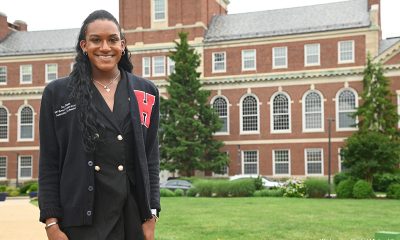
 District of Columbia4 days ago
District of Columbia4 days agoMeet Jay Jones: Howard’s first trans student body president
-
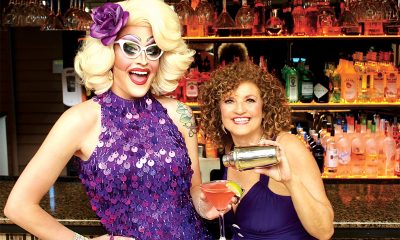
 a&e features4 days ago
a&e features4 days agoWhat’s new at Rehoboth Beach for summer 2024












